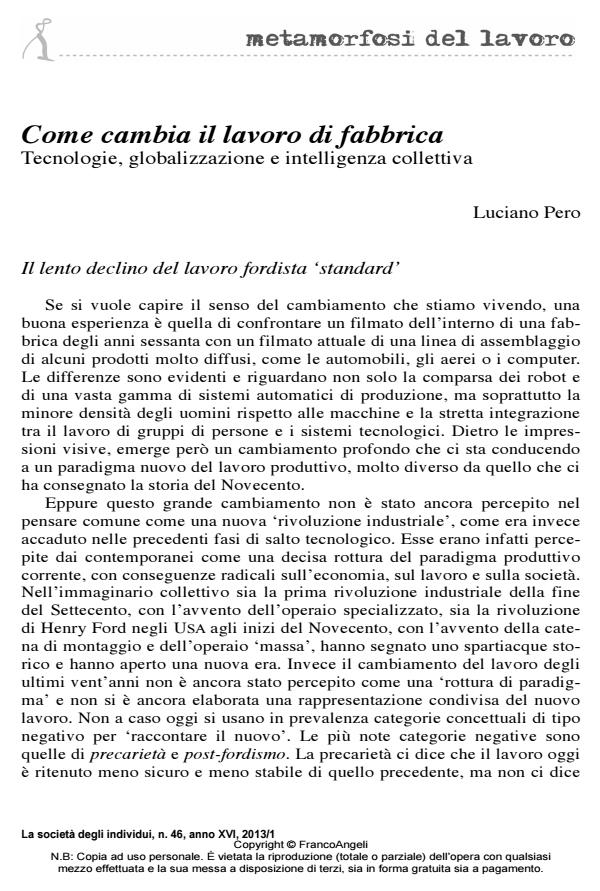How working in factories is changing. Technologies, globalization and collective intelligence
Journal title SOCIETÀ DEGLI INDIVIDUI (LA)
Author/s Luciano Pero
Publishing Year 2013 Issue 2013/46
Language Italian Pages 13 P. 30-42 File size 861 KB
DOI 10.3280/LAS2013-046003
DOI is like a bar code for intellectual property: to have more infomation
click here
Below, you can see the article first page
If you want to buy this article in PDF format, you can do it, following the instructions to buy download credits

FrancoAngeli is member of Publishers International Linking Association, Inc (PILA), a not-for-profit association which run the CrossRef service enabling links to and from online scholarly content.
Work has deeply changed over the past decades, still the change has not yet been perceived by the collective imagination as a new ‘industrial revolution’, as happened in the assembly line by Ford. To find what’s new, the idea is to focus on the operative contents of work and on the contexts in which people are working, rather than on the conditions, such as wages, working hours and continuity of employment. The analysis of the new contents shows a rapid growth of complexity to be managed by workers: either technological, due to the need to know and control at the same time various technologies, or organizational and relational, linked to the emergence of global networks that require relational capabilities, and finally cultural, due to the fact that most workers have to deal with the cultures of other countries and other companies. A conceptual framework for the new paradigm of work is still lacking, but it certainly has at its center: the collective intelligence, the plurality of knowledge, the ability to deal with other cultures, and the teamwork.
Luciano Pero, Come cambia il lavoro di fabbrica Tecnologie, globalizzazione e intelligenza collettiva in "SOCIETÀ DEGLI INDIVIDUI (LA)" 46/2013, pp 30-42, DOI: 10.3280/LAS2013-046003